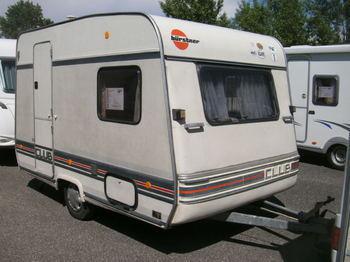
San Jose looks at using garbage haulers to catch car thieves
SAN JOSE – The noisy garbage trucks that lumber down San Jose streets every week could soon pick up more than just trash – they might also scan your license plate and all your neighbors’ tags, too, in a proposed city-wide sweep for stolen vehicles that has civil libertarians sobbing foul.
Mayor Sam Liccardo and Councilmen Johnny Khamis and Raul Peralez proposed that the city consider strapping license plate readers to the front of garbage trucks, permitting them to record the plates of every car along their routes. The data would be fed directly to the Police Department from the privately operated trash trucks, prompting an officer to react to stolen vehicles or cars involved with serious crime.
“We can cover every street at least once a week and possibly deter thieves from coming into our city,” Khamis said. A committee chaired by Liccardo that sets the council’s agenda voted Wednesday to proceed exploring the idea.
While license plate readers are increasingly being used by police across the Bay Area, some are alarmed that San Jose is considering turning the garbage collector into an agent of law enforcement. Councilman Chappie Jones was opposed to what he called an “extreme” policy, evoking the “Big Brother” government of George Orwell’s dystopian one thousand nine hundred forty nine novel “1984.”
Civil rights advocates said the unusual plan raises “significant concerns” and could invade the privacy of San Jose residents because of how the data is collected, stored and analyzed.
“The idea is they would also collect the location of cars as they drive down the street,” said Chris Conley, a policy attorney for ACLU of Northern California who said he has not heard of any other city gathering license plate records in such a way. “If it’s collected repeatedly over a long period of time, it can expose intimate data about you like attending a religious service or a gay bar. People have a right to live their lives without permanently being monitored by the government.”
While most residents may not know it, six San Jose police cars already are fitted with license plate readers that scan car tags every day while out on patrol. This year’s budget pegged an extra $68,400 to pay for two more plate readers.
Khamis said mounting the plate readers on garbage trucks instead of police cars wouldn’t be any more intrusive than what’s already being done. “This is a public street,” Khamis said. “You’re not expecting privacy on a public street.”
Garbage pickup trucks travel the entire city each week, Khamis added, providing them broader reach than a patrol car and lending a arm to a shrinking police force with toughly nine hundred fifty cops.
Khamis called the idea a unique treatment to maximizing technology to thwart crime. The city and county of San Francisco uses license plate scanners on its Muni buses, but only to identify vehicles that are blocking bus stop access for towing or citation. Assistant Police Chief Eddie Garcia said the department welcomes any outside help with combatting crime, but worried about how the department’s skinny staff would react to a hauler’s discovery of stolen cars.
“In a flawless world with the right staffing, I think it would be beneficial,” Garcia said. “But right now, we need to ask ourselves if we have the capacity to take on something like this. If we don’t have the staffing, it just puts an added cargo on us at that point.”
The Police Department can use its twenty six community service officers to react to a stolen vehicle, but only if it’s unoccupied. Otherwise, a police officer would have to be called.
There are also questions about whether the city’s four private haulers will agree to the idea. Khamis said he spoke with one company that was “enthusiastic” about it.
Officials from GreenTeam of San Jose, which services about 48,000 single-family homes in west and central San Jose, told this newspaper the company is on board.
“GreenTeam of San Jose would love to help the city of San Jose thwart crime,” said outreach manager Weslie McConkey. “We are interested in learning more about the proposal to install license plate readers on our garbage and recycling trucks.”
But Conley also worries San Jose is not doing enough to engage residents in the debate, comparing it with how the city’s Police Department calmly purchased a drone that drew outcry over potential privacy concerns when it became public.
“Our hope was they would have learned from the drone once it became a public fiasco,” Conley said. “They need to put the plan in writing and let the public review it.”
Khamis said Wednesday’s act is only the very first step in a long process. The proposal calls for city officials to explore the “feasibility, legality and civil liberties implications” of garbage-truck mounted license plate readers. Questions the council members asked the city to consider include the process of transferring license data from the private garbage trucks to the police, whether they would be subjected to the same or different policies governing police car license readers and whether other cities have taken similar measures and how they worked.
“We’ll look at privacy concerns and talk to ACLU before we do anything,” Khamis said.

